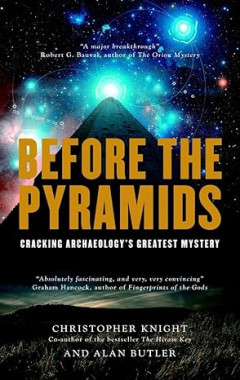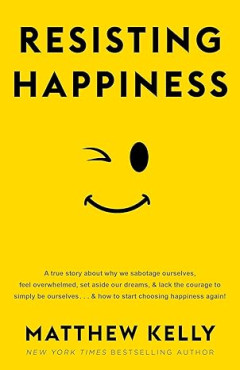Ditapis dengan

E-book Samurai with Telephones External Review of Whole Manuscript Anachron…
What is going on when a graphic novel has a twelfth-century samurai pick up a telephone to make a call, or a play has an ancient aristocrat teaching in a present-day schoolroom? Rather than regarding such anachronisms as errors, Samurai with Telephones develops a theory of how texts can use different types of anachronisms to challenge or rewrite history, play with history, or open history up to…
- Edisi
- -
- ISBN/ISSN
- 9780472904518
- Deskripsi Fisik
- 345 hlmn
- Judul Seri
- -
- No. Panggil
- 810 SMI s

E-book Co-Creation for Sustainability The UN SDGs and the Power of Local Par…
The ebook edition of this title is Open Access and freely available to read online. The UN’s Sustainable Development Goals (SDGs) set an ambitious agenda for global problem-solving and create a framework to achieve it through the power of partnerships. Goal 17 points to the central importance of partnerships, networks, and multi-stakeholder collaborations for bringing together a broad range o…
- Edisi
- -
- ISBN/ISSN
- 9781800438019
- Deskripsi Fisik
- 264 hlmn
- Judul Seri
- -
- No. Panggil
- 338.927 ANS c
E-book Invited to Witness : Solidarity Tourism across Occupied Palestine
“They called me a tourist, which I found insulting.” So began a reflection by a delegate I interviewed who had gone on solidarity tours to Palestine during the first intifada. She grappled with her discomfort in occupying this term: tourist. She outlined her rationale, explaining that the designation tourism, attached to what she did in Palestine, felt derisive of her work, as though it was…
- Edisi
- -
- ISBN/ISSN
- 9781478093046
- Deskripsi Fisik
- 345 hlm
- Judul Seri
- -
- No. Panggil
- 306.4 LYN i
E-book Automatic Religion : Nearhuman Agents of Brazil and France
Brazil’s most famous outsider artist, Arthur Bispo do Rosário, spent fi ft y years in an asylum on the edge of Rio de Janeiro, diagnosed with schizophrenia. On the walls of his studio- cell as well as on objects therein, he created scores of works, many of them now displayed in museums. When, late in life, he gained public recognition, it caused …
- Edisi
- -
- ISBN/ISSN
- 9780226749860
- Deskripsi Fisik
- 333 hlm
- Judul Seri
- -
- No. Panggil
- 230 JOH a
E-book Monkey Trouble : The Scandal of Posthumanism
The human is a source of trouble for posthumanism. Committed to dis-turbing the opposition between human and nonhuman, posthumanist theory has tended to sideline the human from the scene of its theoretical engagements with otherness. The human has become akin to the “Invisible Gorilla” made famous by psychologists Christopher Chabris and Daniel Simons. Seeking to establish …
- Edisi
- -
- ISBN/ISSN
- 9780823277797
- Deskripsi Fisik
- 168 hlm
- Judul Seri
- -
- No. Panggil
- 111 PET m
E-book The Spectre of Capital: Idea and Reality
AlthoughIstartfromMarx,Igobeyondhim.SomybookaimstoreconstructMarx’sworkinthespiritofasystematic-dialecticallogic.Idonottakeaposi-tionhereon‘whatMarxreallymeant’,stilllesson‘whatHegelreallymeant’,noryeton‘whetherMarxgotHegelrightorwrong’.1WhatIaimatisentirelysub-stantive,eventhoughIdrawheavilyuponmyreadingsofHegelandofMarx.InsofarasIappropriatetheirideasformypurposesitiseasytodisce…
- Edisi
- -
- ISBN/ISSN
- 9789004522138
- Deskripsi Fisik
- 462 hlm
- Judul Seri
- -
- No. Panggil
- 332.041 ART t

E-book Schizophrenia: A Very Short Introduction
The schizophrenic patient presented to the public in sensational press reports and lurid films bears little resemblance to reality of the illness. This book describes what schizophrenia is really like, how the illness progresses, and the treatments that have been applied. It also summarizes the most up-to-date knowledge available about the biological bases of this disorder. Finally it attempts …
- Edisi
- -
- ISBN/ISSN
- 9780192802217
- Deskripsi Fisik
- 428 halaman
- Judul Seri
- -
- No. Panggil
- 616.89 FRI s

E-book Russian Literature: A Very Short Introduction
Rather than presenting a conventional chronology of Russian literature, Russian Literature: A Very Short Introduction explores the place and importance in Russian culture of all types of literature. How and when did a Russian national literature come into being? What shaped its creation? How have the Russians regarded their literary language? The book uses the figure of Pushkin--'the Russian Sh…
- Edisi
- -
- ISBN/ISSN
- 9780192801449
- Deskripsi Fisik
- 182 halaman, ilus.
- Judul Seri
- -
- No. Panggil
- 891.7 KEL r

E-book Postmodernism: A Very Short Introduction
Postmodernism has become the buzzword of contemporary society over the last decade. But how can it be defined? In this highly readable introduction the mysteries of this most elusive of concepts are unraveled, casting a critical light upon the way we live now, from the politicizing of museum culture to the cult of the politically correct. The key postmodernist ideas are explored and challenged,…
- Edisi
- -
- ISBN/ISSN
- 9780192802392
- Deskripsi Fisik
- 152 halaman
- Judul Seri
- -
- No. Panggil
- 149.97
E-book Critical Landscape Planning during the Belt and Road Initiative
Landscape architecture participates in development. Whether that participation isself-reflective or uncritical, complicit or compromised, this discipline has had signif-icant impacts on development practice and academia that are often unacknowledgedoutside what is otherwise a relatively narrow professional field. In the ways land-scapes are planned and studied, for instance, both geographic inf…
- Edisi
- -
- ISBN/ISSN
- 9789811640674
- Deskripsi Fisik
- 256 hlm
- Judul Seri
- -
- No. Panggil
- 911 KEL c

E-book Schopenhauerp: A Very Short Introduction
Schopenhauer is the most readable of German philosophers. This book gives a succinct explanation of his metaphysical system, concentrating on the original aspects of his thought, which inspired many artists and thinkers including Nietzsche, Wagner, Freud, and Wittgenstein. Schopenhauer's central notion is that of the will - a blind, irrational force that he uses to interpret both the human mind…
- Edisi
- -
- ISBN/ISSN
- 9780199661268
- Deskripsi Fisik
- 154 halaman
- Judul Seri
- -
- No. Panggil
- 921 JAN s
E-book Reiner Schurmann and Poetics of Politics
To begin with a thinker who remained always attuned to the du-plicitous nature of beginning requires candor. There is a thetic dimension to every beginning, and we will do well not to deny it here. Rather, let us begin by attending to the things Reiner Schürmann himself said about beginning: “A starting point,” he wrote, “that neither abandons ordinary experience nor t…
- Edisi
- -
- ISBN/ISSN
- 9781947447738
- Deskripsi Fisik
- 178 hlm
- Judul Seri
- -
- No. Panggil
- 189 LON r
E-book London’s Urban Landscape : Another Way of Telling
Substitute the term ‘place’ for the apricot-cocktail glass, and you have the overall theme of this book. It puts forward an account of London’s urban landscape by considering it as a constellation of places linked by paths of movement between them.The aim of this book is to describe these places as faithfully as possible through phenomenological description grounded in partic…
- Edisi
- -
- ISBN/ISSN
- 9781787355583
- Deskripsi Fisik
- 458 hlm
- Judul Seri
- -
- No. Panggil
- 307.76421 JEE l

E-book Augustus De Morgan, Polymath: New Perspectives on his Life and Legacy
When Augustus De Morgan died in 1871, he was described as ‘one of the profoundest mathematicians in the United Kingdom’ and even as ‘the greatest of our mathematicians’. But he was far more than just a mathematician. Because much of his voluminous written output on various subjects was scattered throughout journals and encyclopaedias, the breadth of his interests and contributions has b…
- Edisi
- -
- ISBN/ISSN
- 9781805113263
- Deskripsi Fisik
- 388 halaman, ilus.
- Judul Seri
- -
- No. Panggil
- 925 ATT a
E-book The Challenges of Nuclear Security : U.S. and Indian Perspectives
Nuclear safety and security—the protection of nuclear facilities, weapons, technologies, and materials against accidents or attacks—is an under-studied area of international security studies.1 Periodically, the subject has received high levels of attention. Following the fall of the Soviet Union, for example, scholars and policymakers worried intense…
- Edisi
- -
- ISBN/ISSN
- 9783031568145
- Deskripsi Fisik
- 321 hlm
- Judul Seri
- -
- No. Panggil
- 327 BOY t

E-book Samurai with Telephones: Anachronism in Japanese Literature
What is going on when a graphic novel has a twelfth-century samurai pick up a telephone to make a call, or a play has an ancient aristocrat teaching in a present-day schoolroom? Rather than regarding such anachronisms as errors, Samurai with Telephones develops a theory of how texts can use different types of anachronisms to challenge or rewrite history, play with history, or open history up to…
- Edisi
- -
- ISBN/ISSN
- 9780472076871
- Deskripsi Fisik
- 243 halaman, ilus.
- Judul Seri
- -
- No. Panggil
- 302.23 SMI s

E-book The Shared Origins of Football, Rugby, and Soccer
In today’s hypercompetitive world, contact sports bring about fierce rivalries between fans, between players, and even between countries. From the Ohio State Buckeyes and the Michigan Wolverines in grid iron football, to the Australian Wallabies and the New Zealand All Blacks in rugby, to Real Madrid and Barcelona in association football (soccer), contact sports incite a passion few other gam…
- Edisi
- -
- ISBN/ISSN
- 9781442246188
- Deskripsi Fisik
- 262 halaman, ilus.
- Judul Seri
- -
- No. Panggil
- 796.309 ROW t

E-Book Eldest (Yang Pertama)
Kegelapan turun... Pedang-pedang beradu... Kejahatan menang. Eragon dan naganya, Saphira, berhasil menyelamatkan para pemberontak dari Raja Galbatorix, penguasa kejam Kekaisaran. Sekarang Eragon harus pergi ke Ellesmera, negeri para elf, untuk mempelajari lebih dalam ilmu sihir dan ilmu pedang, keahlian utama Penunggang Naga. Perjalanan yang luar biasa itu membuatnya sampai di banyak tempa…
- Edisi
- Cet. 6
- ISBN/ISSN
- 9792217185
- Deskripsi Fisik
- 760 hlm; 17 MB
- Judul Seri
- The Inheritance Cycle 2
- No. Panggil
- 813 PAO e

E-book The Sperm Cell: Production, Maturation, Fertilization, Regeneration, 2…
This revised and updated second edition provides a comprehensive account of the human male gamete. Detailed overviews of human sperm production, maturation, and function - and how these processes affect and influence fertility, infertility, and assisted reproduction - are given. A wide range of new developments including proteomics, spermatogenesis, sperm-specific WW domain-binding proteins, Ca…
- Edisi
- Second Edition
- ISBN/ISSN
- 9781107126329
- Deskripsi Fisik
- 316 halaman, ilus.
- Judul Seri
- -
- No. Panggil
- 571.864 DEJ t

E-book Eyewitness: Knight
Detailed photographs trace the origins, heyday, and eventual decline of knighthood, chivalry, and the feudal system. Discover how armor was made, how men became knights, and what life in a medieval castle was like. "Great for reluctant readers."--School Library Journal.
- Edisi
- -
- ISBN/ISSN
- 9780756630034
- Deskripsi Fisik
- 74 halaman, ilus.
- Judul Seri
- -
- No. Panggil
- 929.7 GRA e

E-book Eyewitness: Matter
Examines the elements that make up the physical world and the properties and behavior of different kinds of matter
- Edisi
- -
- ISBN/ISSN
- 9780789461730
- Deskripsi Fisik
- 65 halaman, ilus.
- Judul Seri
- -
- No. Panggil
- 530.4 COO e

E-book Bats and Viruses: A New Frontier of Emerging Infectious Diseases
Approximately 75% of emerging infectious diseases are zoonoses, and the rate of emergence of zoonotic diseases is on the rise. Bats are being increasingly recognised as an important reservoir of zoonotic viruses of different families, including SARS coronavirus, Nipah virus, Hendra virus and Ebola virus. Understanding bats’ role in emerging zoonotic diseases is crucial to this rapidly expandi…
- Edisi
- -
- ISBN/ISSN
- 9781118818732
- Deskripsi Fisik
- 405 halaman, ilus.
- Judul Seri
- -
- No. Panggil
- 614.34 WAN b

E-book Before the Pyramids: Cracking Archaeology's Greatest Mystery
Were the pyramids of the pharaohs conceived in Britain? The acclaimed coauthors of Civilization One think so, and they take readers on a gripping excursion into ancient religion and astronomy. Knight and Butler not only establish the existence of an advanced civilization with astonishing, almost modern knowledge, but they also explain how the oldest Neolithic monuments--the henges of North York…
- Edisi
- -
- ISBN/ISSN
- 9781907486661
- Deskripsi Fisik
- 252 halaman
- Judul Seri
- -
- No. Panggil
- 932 KNI b
E-book Political Landscapes : Forests, Conservation, and Community in Mexico
In 1937 an offi cial from the Mexican forest service visited the rugged Sierra Tarahumara mountains in southern Chihuahua, which even today remain one of the nation’s most isolated places. Th e landscape that greeted An-tonio H. Sosa was unlike anything he had seen in central Mexico. He ad-mired the “immensity, beauty, and potential” of the untouched Ponderosa and Montezuma pines tha…
- Edisi
- -
- ISBN/ISSN
- 9780822375876
- Deskripsi Fisik
- 361 hlm
- Judul Seri
- -
- No. Panggil
- 970 BOY p

E-book Manhattan Project: The Birth of the Atomic Bomb in the Words of Its Cr…
- Edisi
- -
- ISBN/ISSN
- 9781579127473
- Deskripsi Fisik
- 488 halaman, ilus.
- Judul Seri
- -
- No. Panggil
- 355.825119 KEL m
- Edisi
- -
- ISBN/ISSN
- 9781579127473
- Deskripsi Fisik
- 488 halaman, ilus.
- Judul Seri
- -
- No. Panggil
- 355.825119 KEL m
Inheritance : Warisan
Beberapa waktu lalu, Eragon-Shadeslayer, Penunggang Naga bukanlah siapa-siapa, hanya bocah petani miskin. Naganya, Saphira cuma batu biru di hutan. Sekarang, nasib seluruh umat manusia berada di tangan mereka. Latihan dan pertempuran selama berbulan-bulan yang panjang membawa kemenangan dan harapan, tapi juga duka mencekam. Namun, pertempuran yang sesungguhnya belumlah terjadi: mereka harus ber…
- Edisi
- -
- ISBN/ISSN
- 9789792284997
- Deskripsi Fisik
- 916 hlm; 15 x 23 cm
- Judul Seri
- -
- No. Panggil
- 823 PAO i
Brisingr
Eragon dan naganya, Saphira berhasil bertahan hidup setelah pertempuran kolosal melawan para prajurit Kekaisaran di Dataran Membara. Namun masih banyak yang harus dihadapi sang Penunggang dan naganya ini. Eragon harus menyelamatkan Katrina, kekasih Roran dari cengkeraman Raja Galbatorix, sesuai janjinya pada abangnya itu. Tetapi kaum Varden, elf, dan kurcaci pun membutuhkan sang Penunggang. Ket…
- Edisi
- -
- ISBN/ISSN
- 9789792243543
- Deskripsi Fisik
- xviii + 859 hlm; 15 x 23 cm
- Judul Seri
- -
- No. Panggil
- 823 PAO b
Eldest
Eragon dan naganya, Saphira, berhasil menyelamatkan para pemberontak dari Raja Galbatorix, penguasa kejam Kekaisaran. Sekarang Eragon harus pergi ke Ellesmera, negeri para elf, untuk mempelajari lebih dalam ilmu sihir dan ilmu pedang, keahlian utama Penunggang Naga. Perjalanan yang luar biasa itu membuatnya sampai di banyak tempat yang memikat dan menemui orang-orang yang menakjubkan. Setiap ha…
- Edisi
- -
- ISBN/ISSN
- 9789792217186
- Deskripsi Fisik
- xviii + 751 hlm; 15 x 23 cm
- Judul Seri
- -
- No. Panggil
- 823 PAO e
Eragon
Suatu hari Eragon, anak petani miskin berusia lima belas tahun, telah menemukan "batu" berwarna biru yang indah. Ternyata batu itu telur naga! Ditemani Brom si pendongeng tua dan naga yang dinamainya Saphira, Eragon belajar berbagai hal mengenai sejarah dan naga. Brom juga mengajarkan ilmu sihir dan ilmu pedang karena ternyata Eragon adalah penerus klan para Penunggang Naga. Klan ini punah kare…
- Edisi
- -
- ISBN/ISSN
- 9789792208627
- Deskripsi Fisik
- 565 hlm; 15 x 23 cm
- Judul Seri
- -
- No. Panggil
- 823 PAO e
E-book The Passenger: Medieval Texts and Transits
To be an airline passenger in transit is to move through states without permanently adopting them. The very legal nature of a transit lounge embodies this perfectly. When one is in tran-sit, one does not pass through immigration and enter the legal boundaries of a nation-state. The strange nature of transit is best exemplified by its failures — the case of Mehran Karimi Nas…
- Edisi
- -
- ISBN/ISSN
- 9781947447370
- Deskripsi Fisik
- 138 hlm
- Judul Seri
- -
- No. Panggil
- 800 SMI t
E-book Contemporary Debates in Bioethics: European Perspectives
Humans have always had the ability to influence the genetic makeup of their children. Individuals who wanted tall and attractive children, for instance, could find tall and attractive partners to reproduce with, thereby raising the probability that their progeny would be tall and attractive. However, until very recently, this power was limited. Individuals …
- Edisi
- -
- ISBN/ISSN
- 9783110571219
- Deskripsi Fisik
- 187 hlm
- Judul Seri
- -
- No. Panggil
- 170 GYN c

E-book Eyewitness Travel: Top 10 Cuba
True to its name, DK Eyewitness Travel Guide: Top 10 Cuba covers all the island nation's major sights and attractions in easy-to-use "top 10" lists that help you plan the vacation that's right for you.
- Edisi
- -
- ISBN/ISSN
- 9781465457073
- Deskripsi Fisik
- 146 halaman, ilus.
- Judul Seri
- -
- No. Panggil
- 910 BAK e
E-book Eyewitness Travel: Venice and The Veneto
The jewel of the Veneto, Venice is a dreamlike city filled with architectural wonders and incredible collections of art. But this region offers far more than this watery oasis. Lake Garda boasts beautiful scenery, Verona features the world's third-largest Roman Arena, and the Dolomites are rich with alpine forests and verdant hills.
- Edisi
- -
- ISBN/ISSN
- 9781465467980
- Deskripsi Fisik
- 322 halaman, ilus.
- Judul Seri
- -
- No. Panggil
- 910 BOU e

E-book The Roman Empire: A Very Short Introduction
The Roman Empire was a remarkable achievement. It had a population of sixty million people spread across lands encircling the Mediterranean and stretching from northern England to the sun-baked banks of the Euphrates, and from the Rhine to the North African coast. It was, above all else, an empire of force--employing a mixture of violence, suppression, order, and tactical use of power to develo…
- Edisi
- -
- ISBN/ISSN
- 0192803913
- Deskripsi Fisik
- 169 halaman
- Judul Seri
- -
- No. Panggil
- 938.0 KEL t 002856-eB-0122

E-book Postmodernism: A Very Short Introduction
Postmodernism has become the buzzword of contemporary society over the last decade. But how can it be defined? In this highly readable introduction the mysteries of this most elusive of concepts are unraveled, casting a critical light upon the way we live now, from the politicizing of museum culture to the cult of the politically correct. The key postmodernist ideas are explored and challenged,…
- Edisi
- -
- ISBN/ISSN
- 0192802399
- Deskripsi Fisik
- 152 halaman
- Judul Seri
- -
- No. Panggil
- 149.97 BUT p 002835-eB-0122

Ebook Modern Japan: A Very Short Introduction
Japan is arguably today's most successful industrial economy, combining almost unprecedented affluence with social stability and apparent harmony. Japanese goods and cultural products--from animated movies and computer games to cars, semiconductors, and management techniques--are consumed around the world. In many ways, Japan is an icon of the modern world, and yet it remains something of an en…
- Edisi
- -
- ISBN/ISSN
- 9780199235608
- Deskripsi Fisik
- 177 halaman
- Judul Seri
- -
- No. Panggil
- 952 GOT m 002858-eB-0122
E-book An Anthropology of Landscape : The Extraordinary in the Ordinary
Landscape is a subject of study that belongs to nobody. It has long been studied in various ways and under various guises by geologists, social and cultural geographers, planners, ecologists, historians and art historians, archaeologists and anthropologists. Landscapes form the basis for much poetry and innumerable novels and are thus of interest to…
- Edisi
- -
- ISBN/ISSN
- 9781911307433
- Deskripsi Fisik
- 349 hlm
- Judul Seri
- -
- No. Panggil
- 913.01 TIL a
E-book Fluid Balance, Hydration, and Athletic Performance
Undeniably, water, the nutrient comprising the greatest percentage of mass in the human body, has the most dramatic impact on function and structure when its balance is upset. The human body is resilient to some change. However, during physical activities, such as athletics, the effects of water deficit can be magnified to that point where physical and mental functions are diminis…
- Edisi
- -
- ISBN/ISSN
- 9781482223286
- Deskripsi Fisik
- 458 hlm
- Judul Seri
- -
- No. Panggil
- 613.2 ARA f
E-book Landscape in the Longue Duree
A common- sense understanding of the ‘longue durée’ might be that it simply refers to the long term, a long period of chronological time. This notion of clock or objective chronological time is ultimately uninteresting and helps us to explain and understand nothing. It is empty time, time as a container segmented by dates and events, befores and afters.The Annales approach to t…
- Edisi
- -
- ISBN/ISSN
- 9781787350816
- Deskripsi Fisik
- 503 hlm
- Judul Seri
- -
- No. Panggil
- 930.15 TIL l
E-book Civilian Specialists at War : Britain’s Transport Experts and the Fi…
ooking back upon the operations of 1916, and in anticipation of the battles to come, the French prime minister, Aristide Briand, remarked that military offensives had become ‘really like a great industrial undertaking. There were so many miles of front, so many troops, and so many guns required; all had to be calculated to a nicety, and all kinds of preparations made’.1 In the…
- Edisi
- -
- ISBN/ISSN
- 9781909646926
- Deskripsi Fisik
- 446 hlm
- Judul Seri
- -
- No. Panggil
- 940.3 PHI c

E-book Made in Asia/America: Why Video Games Were Never (Really) about Us
The contributors to Made in Asia/America explore the historical entanglements of video games, Asia, and America, showing how examining games offer new ways of imagining empire, race, and coalition.
- Edisi
- -
- ISBN/ISSN
- 9781478030263
- Deskripsi Fisik
- 377 halaman
- Judul Seri
- -
- No. Panggil
- 794.8 PAT m 002819-eB-0122
E-book Encyclopedia of Clothing and Fashion vol. 2
A perusal of academic books in fashion studies over the last decade reveals that the term “fad” itself may have fallen out of style. Even Arthur Berger’s text Ads, Fads, and Consumer Culture includes little mention of fads. Still, popular media feature lists of “what’s hot” versus “what’s not.” Why aren’t these called fads? Perhaps the timespace nexus associated with contemp…
- Edisi
- Vol. 2
- ISBN/ISSN
- 0684314517
- Deskripsi Fisik
- 470 hlm
- Judul Seri
- -
- No. Panggil
- 746.92 SHE f

E-book The Expanding Universe of Writing Studies: Higher Education Writing Re…
This edited collection arrives at a crucial moment in the evolution of Writing Studies research. It brings together well-known and emerging scholars in the field of Writing Studies, broadly defined, to explore the range of research methods and methodologies, the types of research questions asked, and the types of data in play in research about higher education writing in the 21st century. Its c…
- Edisi
- -
- ISBN/ISSN
- 9781433177316
- Deskripsi Fisik
- 462 halaman
- Judul Seri
- -
- No. Panggil
- 371.1 BLE t
E-book Monster
When the guards came over, they made us line up against the wall. The guy who was hit they made sit at the table while they waited for another guard to bring them rubber gloves. When the gloves came, the guards put them on, handcuffed the guy, and then took him to the dispensary. He was still bleeding pretty bad. They say you get used to being in jail, but I don’t see how. Every morning I wak…
- Edisi
- -
- ISBN/ISSN
- 9780064407311
- Deskripsi Fisik
- 202 hlm
- Judul Seri
- -
- No. Panggil
- 823 MYE m
E-Book Not Yet Imagined: A Study of Hubble Space Telescope Operations
Not Yet Imagined documents Hubble history from the telescope’s launch through its first 30 years, focusing on the interactions between astronomers, engineers, government officials, and public during that time. It chronicles the telescope’s tumultuous beginnings, the decision-making behind the servicing missions, Hubble’s contributions to our understanding of the universe, and how the tele…
- Edisi
- -
- ISBN/ISSN
- 9781626830622
- Deskripsi Fisik
- 452 halaman
- Judul Seri
- -
- No. Panggil
- 522.2 GAI n

E-Book Resisting Happiness: A True Story about Why We Sabotage Ourselves
EVERY SINGLE MOMENT IS A CHANCE TO TURN IT ALL AROUND. Are you happy? It may be the wrong question. Most of us think we are relatively happy, while at the same time knowing that we could be happiermaybe even a lot happier. Ordinary people and the finest philosophers have been exploring the question of happiness for thousands of years, and theories abound. But this is not a book of theory. Resi…
- Edisi
- -
- ISBN/ISSN
- 1942611919
- Deskripsi Fisik
- 240 halaman
- Judul Seri
- -
- No. Panggil
- 155.25 KEL r
E-book The Writer's Journey : Mythic Structure for Writers
In the nine years since the last edition, I have traveled widely, applied my ideas to writing, publishing, and producing projects of my own, and done a few more "tours of duty" as it were for major Hollywood studios. The first of these jobs, commencing just after the publishing of the second edition, was a four-year return to 20th Century Fox, where I had been a story analyst at the beginning …
- Edisi
- 3rd ed.
- ISBN/ISSN
- 9781932907360
- Deskripsi Fisik
- 452 hlm
- Judul Seri
- -
- No. Panggil
- 808.2 VOG t
E-book The Football Coaching Process
The Football Australia Coaching Expertise Model was developed to give coaches and coach educators a clear picture of what knowledge and skills are required to operate effectively as a football coach. Our vision on how to play football has been well-documented, through the publication of the National Football Curriculum and Football Australia’s Building Blocks of player development. The next …
- Edisi
- -
- ISBN/ISSN
- -
- Deskripsi Fisik
- 273 hlm
- Judul Seri
- -
- No. Panggil
- 796.334 CRO t

Encyclopedia Of Life
Explore plants, water life, insects, reptiles, amphibians, birds and mammals with this wonderfully comprehensive encyclopedia. Useful features include visual factfiles, bulleted facts, charts, world records, bizarre facts and top tens. The book is fully cross-referenced throughout and is packed with diagrams, illustrations and photos, making it a brilliant guide to everything you have ever want…
- Edisi
- -
- ISBN/ISSN
- 9781786173270
- Deskripsi Fisik
- 22,3 cm x 17,3 cm, 384 hlm
- Judul Seri
- -
- No. Panggil
- 032 MIL e
E-book Emerging Threats of Synthetic Biology and Biotechnology : Addressing S…
Synthetic biology raises the possibility that pathogenic bioweapons could be designed, developed, and deployed in new ways that diverge from the disease-causing characteristics of naturally occurring pathogens (NAS 2018). Traditionally, only known pathogens found naturally in the environment, such as B. anthracis and Y. pestis, were developed as biological weapons because o…
- Edisi
- -
- ISBN/ISSN
- 9789402420869
- Deskripsi Fisik
- 233 hlm
- Judul Seri
- -
- No. Panggil
- 610.28 TRU e
 Karya Umum
Karya Umum  Filsafat
Filsafat  Agama
Agama  Ilmu-ilmu Sosial
Ilmu-ilmu Sosial  Bahasa
Bahasa  Ilmu-ilmu Murni
Ilmu-ilmu Murni  Ilmu-ilmu Terapan
Ilmu-ilmu Terapan  Kesenian, Hiburan, dan Olahraga
Kesenian, Hiburan, dan Olahraga  Kesusastraan
Kesusastraan  Geografi dan Sejarah
Geografi dan Sejarah